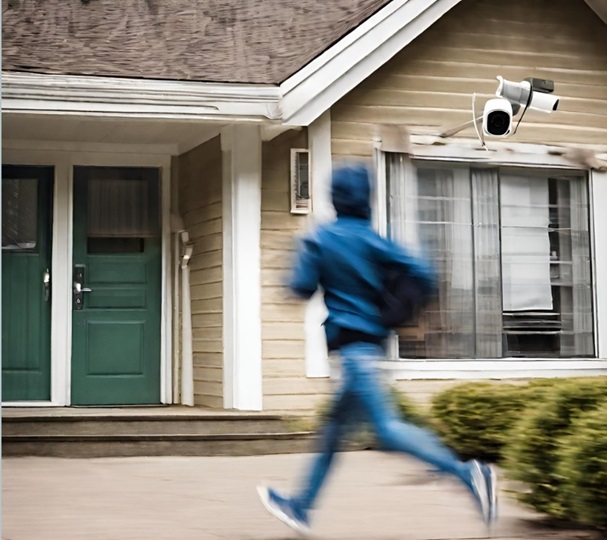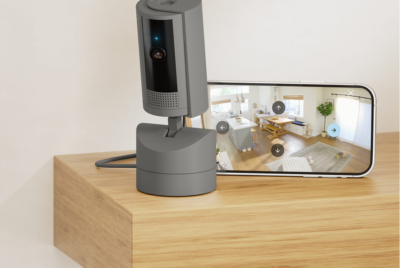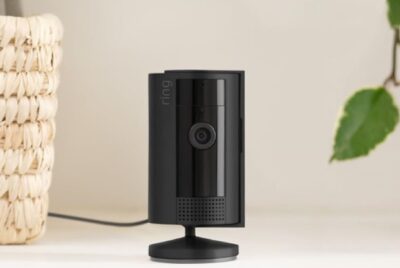Advanced AI Features in Home Security Cameras
Advanced AI features in home security cameras should be a consideration when buying. As an enthusiast dedicated to safeguarding homes, I understand the importance of choosing the right home security camera equipped with advanced Artificial Intelligence (AI) features. In this article, I’m excited to share my insights on AI features in home security cameras, specifically motion detection, facial recognition, and alert systems. These features have revolutionized the way we protect our homes.
Understanding AI in Home Security Cameras
Before going thru the specific features, I wanted to explain what AI brings to the table in the world of home security. Artificial Intelligence equips cameras with the ability to process and analyze data in real-time, making them far more intelligent and responsive.
Advanced AI features in Home Security Cameras
Motion Detection, Facial Recognition, and Alerts: Let’s explore these AI features individually, so that you get a thorough understanding of each one. Making informed decisions before buying home security cameras can save you time and money in the long run.
Motion Detection: A Crucial Feature
Motion detection is a cornerstone of effective home security. These intelligent systems use sensors to detect any movement within their field of view. The beauty of motion detection lies in its ability to distinguish between ordinary movements, like a swaying branch, and potential security threats, triggering alerts only when necessary. This feature acts as a proactive shield against intruders, making it an essential consideration when choosing a home security camera.
How it works: Motion detection allows the camera to identify and track any movement in its field of view. The technology often relies on algorithms that can distinguish between various objects, ensuring that false alarms are kept to a minimum.
Benefits: Motion detection is essential as it can instantly alert you to any unusual activity. Whether it’s an intruder, a delivery person, or a pet, you’ll receive timely notification on your smartphone or other devises, keeping you in the loop even when you’re not a home.
Choosing the right sensitivity: When selecting a camera, pay attention to the sensitivity settings. You can adjust these settings to cater to your specific needs, preventing your camera from being triggered by every leaf blowing in the wind.
Facial Recognition Technology: The Future of Security
Imagine a security camera that not only detects motion but can also identify familiar faces. Facial recognition technology has revolutionized the way we approach home security. By storing data on known individuals, these cameras can distinguish between family members, friends, and potential intruders. This advanced feature adds an extra layer of protection, offering a personalized and intelligent security solution.
How it enhances security: Facial recognition technology can differentiate between known individuals, like family members or regular visitors, and strangers. This level of personalization helps you determine who is at your door or in your home, enhancing security and convenience.
Privacy concerns: There are concerns about the privacy implications of facial recognition technology. Be sure to explore cameras with robust privacy settings that allow you to control the data and images captured.
Alert Systems: Staying Informed
The effectiveness of any security system lies in its ability to deliver timely alerts. Whether it’s a motion detection alert or a notification based on facial recognition, the alert system is the backbone of home security. Rapid and accurate notifications empower homeowners to respond swiftly to potential threats, turning a passive security system into an active defense mechanism.
Types of alerts: You can receive alerts via smartphone notifications, emails, or even text messages. Some cameras offer additional feature, like sirens or flashing lights, to deter potential intruders.
Integration of AI Features in Home Security Cameras
Motion detection and facial recognition, when integrated seamlessly, provide a comprehensive security solution. The synergy between these AI features ensures that the camera not only identifies movement but also recognizes who or what triggered the motion. This level of sophistication is invaluable in differentiating between harmless activities and potential security breaches.
Consideration Factors: Buying the Right Home Security Camera
Choosing the right home security camera involves considering various factors. From the type of camera to the specific AI features it offers, each aspect plays a crucial role. Factors such as resolution, field of view, and connectivity options should be weighed against the importance of AI features in enhancing overall security.
Camera Placement Strategies for Maximum Effectiveness: Strategic placement of security cameras is essential for maximizing their effectiveness. Understanding the layout of your property and identifying vulnerable points can guide you in optimal camera placement. Well-placed cameras not only deter potential threats but also capture critical footage when needed.
Privacy Concerns and Solutions: While the benefits of AI features are undeniable, privacy concerns often arise. Addressing these concerns involves implementing privacy measures, such as encrypted data storage and clear user permissions. By finding a balance between security and privacy, homeowners can enjoy the advantages of AI features without compromising personal space.
Comparing Brands and Models: The market is flooded with various home security camera brands and models. When comparing them, it’s crucial to focus on the specific AI features offered. Not all cameras are created equal, and understanding the strengths and weaknesses of each model ensures you make an informed decision.
User-Friendly Interfaces: A Game-Changer: A user-friendly interface can make a significant difference in the overall user experience. Navigating through settings, reviewing footage, and customizing alerts should be intuitive and straightforward. A well-designed interface ensures that even those unfamiliar with technology can easily manage their home security system.
DIY Installation vs Professional Installation: Deciding between a do-it-yourself (DIY) installation and professional installation depends on various factors. While DIY setups offer cost savings and flexibility, professional installations guarantee expertise and optimal system performance. Consider your technical proficiency and the complexity of the system before making a decision.
Future Trends in Home Security: The world of home security is continually evolving. As technology advances, new trends emerge. From AI-powered drones to predictive analytics, staying informed about future trends ensures your home security system remains ahead of the curve.
Customer Reviews and Testimonials: Before finalizing your decision, delve into customer reviews and testimonials. Real-world experiences shared by other users offer valuable insights into the reliability and performance of different security cameras. Learn from the experiences of others to make an informed choice.
Conclusion
In conclusion, AI features such as motion detection, facial recognition, and advanced alert systems are integral components of a robust home security setup. When considering a home security camera, weigh the importance of these features against other factors, ensuring a well-rounded and effective solution tailored to your needs. By understanding the intricacies of AI technology and its applications in home security, you can make an informed decision to protect what matters most.
FAQs
1. Are AI features necessary for a home security camera?
While not strictly necessary, AI features significantly enhance a camera’s effectiveness by enabling features like motion detection, facial recognition, and alerts, making them more intelligent and responsive.
2. How do privacy concerns associated with facial recognition technology get addressed?
Privacy concerns are addressed through measures such as encrypted data storage and clear user permissions, ensuring a balance between security and privacy.
3. Can I install a home security camera on my own?
Yes, many cameras offer DIY installation options. However, professional installation may be preferable for those seeking expert setup and optimal performance.
4. What should I prioritize when comparing different security camera models?
Prioritize features that align with your security needs, such as motion detection, facial recognition, resolution, and a user-friendly interface.
5. What are some upcoming trends in home security technology?
Emerging trends include AI-powered drones, predictive analytics, and advancements in cloud-based security solutions. Stay informed to keep your security system up-to-date.




